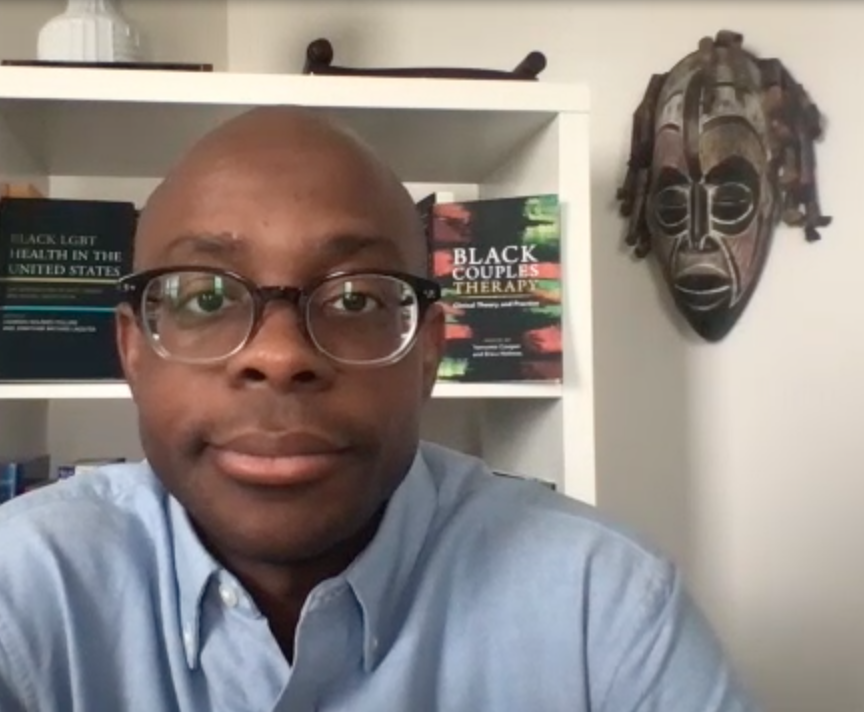
Licensed clinical psychologist Jonathan Mathias Lassiter, Ph.D., was his own first subject in studying how White supremacy had shaped the field of psychology, and specifically the demoralizing personal experiences of marginalization and oppression.
The professor, prolific writer, and author discussed the need to address mental health disparities in the Black communities, emphasizing the intersectionality of race and LGBTQ identity and the importance of understanding the cultural context.
Lassiter said his affinity towards the field of psychology emanated from his turbulent upbringing in the Deep South. He is the grandson of a sharecropper and the son of an entrepreneur father who was raised in a very racially oppressive, Southern community. One of the things Lassiter discerned early in life by his father was “emotional suppression,” which often exacerbates mental anguish and hastens physical deterioration.
“[I was] going through a lot of my own trials and tribulations from having sickle cell anemia, to coming to terms with my sexual orientation as a same-gender loving man, and emotions were a big part of that process,” Lassiter told rolling out. “And so given the juxtaposition of the message to suppress the emotions, but also having this sort of emotional turmoil within myself, I wanted to understand better emotions and how people think and why they did what they did and what and how to feel better.”
From his own painstaking introspection and tumult, Lassiter’s love of psychology blossomed, along with his desire to address mental health among African Americans, people of color, and members of the LGBTQ community.
Lassiter wanted “to learn more so that [he could] help the people that needed it, but had not really had people that look like them doing that work.”
In addition to his work as a licensed clinical psychologist, Lassiter is the author of How I Know White People are Crazy, which is a memoir and cultural analysis related to race, sexuality, chronic illness, and mental health. Lassiter serves as the artistic associate at The Black Acting Methods Studio and an assistant professor of psychology. He also is the award-winning co-editor of Black LGBT Health in the United States: The Intersection of Race, Gender, and Sexual Orientation.
His works, regardless of the chosen mediums and platforms, have a singular purpose for Lassiter.
“My whole mission is to positively influence the mental health of Black people, Black LGBTQ plus people, and to really help people see themselves and understand themselves better,” he said.

